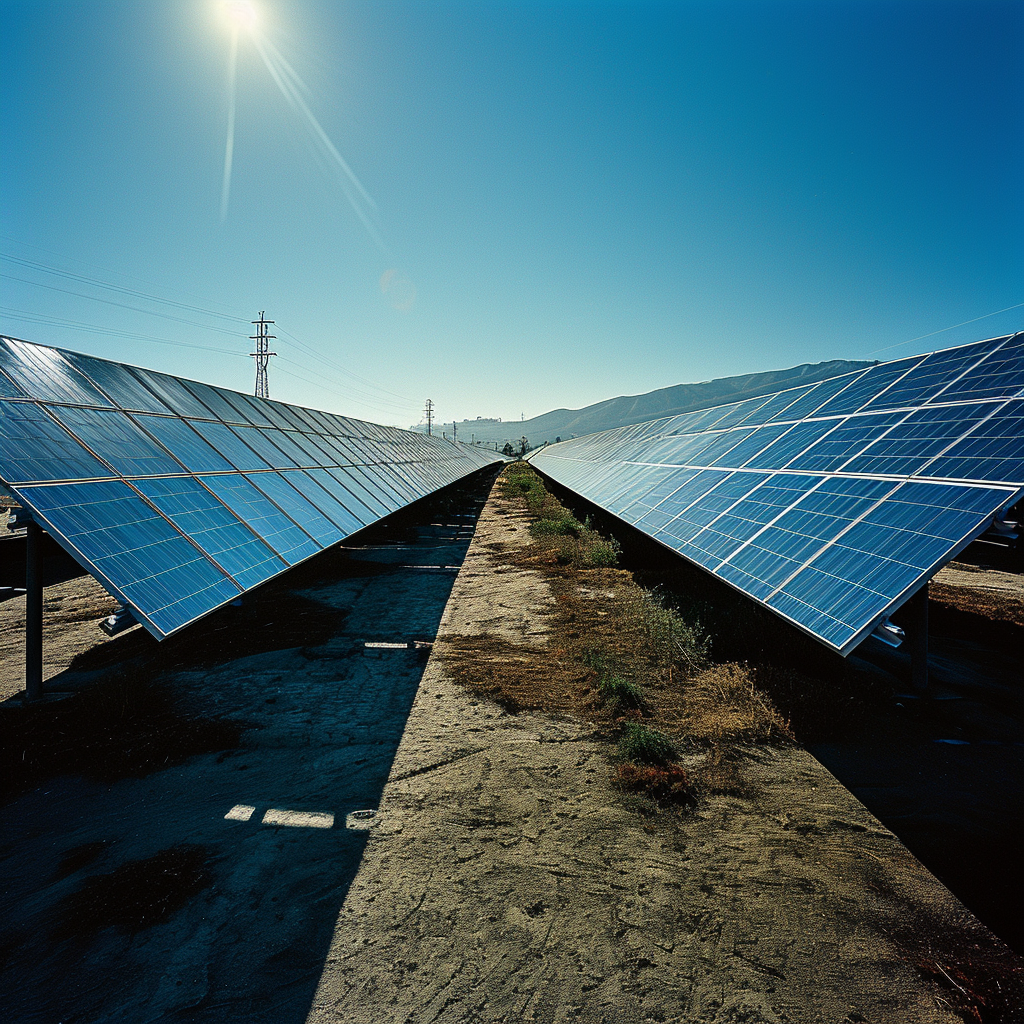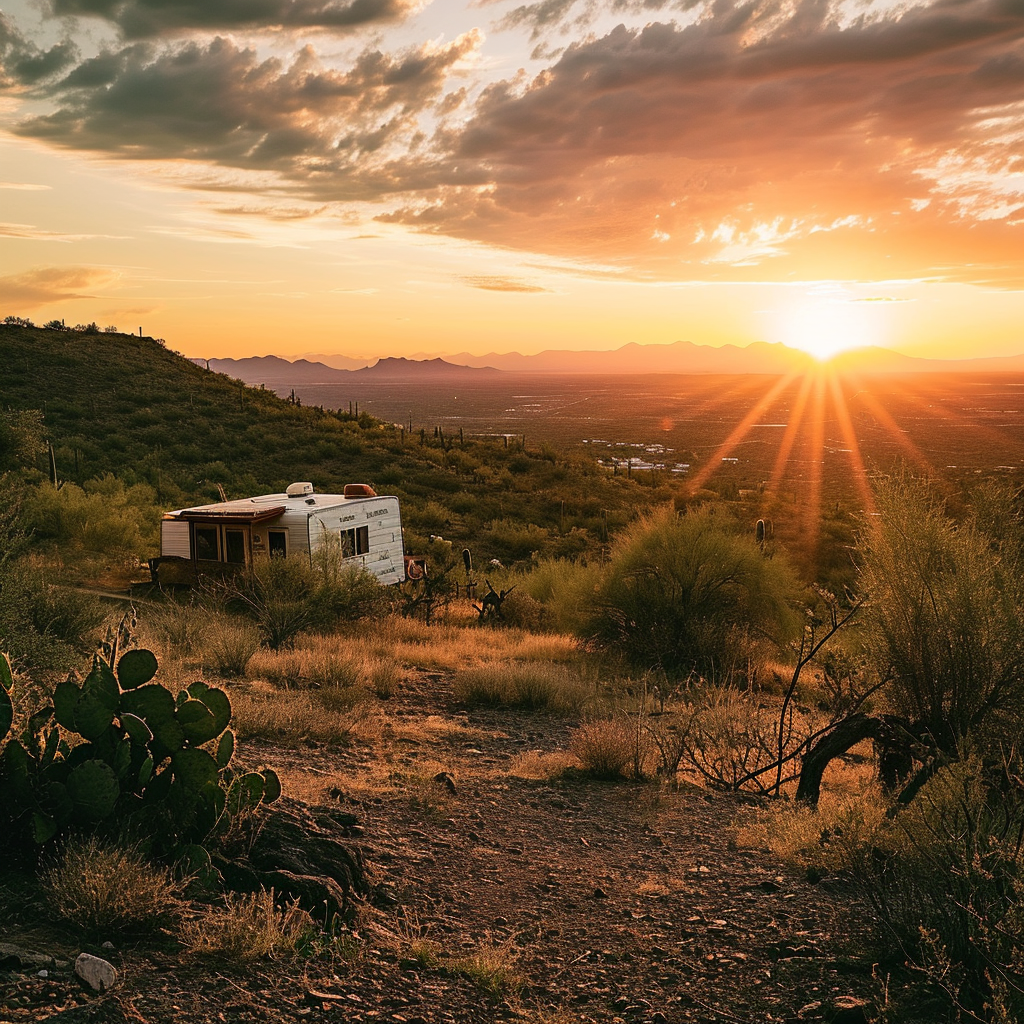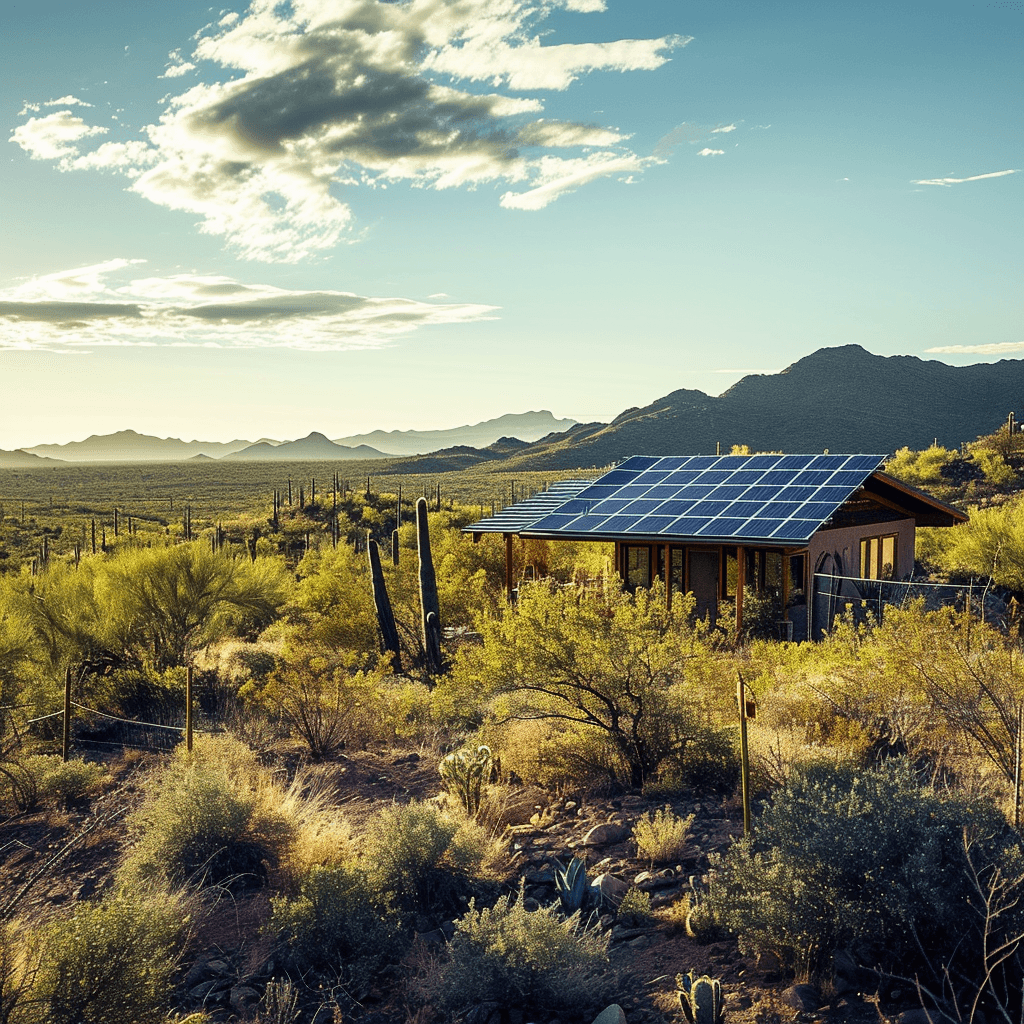Introduction
The allure of living off-grid – an eco-conscious lifestyle that emphasizes self-reliance and a return to basics – is undeniable. This rising trend of sustainable living prompts the question: Is It Legal to Be Off the Grid in Arizona? The answer is ‘yes,’ but with some caveats. Before you pack your solar panels and bid farewell to the traditional grid, it’s essential to understand the specific regulations and permits associated with off-grid living in Arizona.
Living Off-grid: Legal, Yet Restricted
Living off-grid is entirely legal in Arizona, but that doesn’t mean it comes without restrictions. Before you take the plunge into self-sufficiency, you must ensure that your intended homestead can support your lifestyle.
Your off-grid homestead should have a viable means of living and access to water.
If you’re considering this lifestyle change, bear in mind that Arizona laws necessitate certain prerequisites. Anyone wishing to live off-grid in Arizona must meet an age requirement of 18 years and an equity limit of $150,000 for the property.
Navigating Local Laws and Permits
Although off-grid living is technically legal, it’s essential to comply with local building codes and permits, which often include the installation of off-grid solar panels. If you’re contemplating living off-grid in the Phoenix area, you must obtain the necessary permits.
“Compliance with local building codes and obtaining permits for off-grid solar is necessary in Phoenix and other parts of Arizona.”
It’s worth noting that Arizona’s zoning laws and building codes vary greatly across its many counties, cities, and towns. Therefore, to ensure you’re not breaching any local rules, it’s crucial to conduct thorough research into the specific regulations in your desired area.
Consequences of Non-compliance
While it might be tempting to bypass some of these laws and regulations in your quest for an off-grid lifestyle, remember that there are potential repercussions. Violations of local zoning laws can lead to penalties, ranging from fines to legal action. Enforcement measures are diverse and can occur through fines, legal directives, or even demands for alterations to your property.
“Violations of local zoning laws can result in fines, penalties, and legal action.”
Local authorities often discover violations through various means such as neighbor complaints, inspections, building permit applications, or aerial surveillance. Thus, ensuring full compliance from the onset can save you a great deal of trouble down the line.
In summary, while it’s legal to live off-grid in Arizona, it comes with its share of regulations and requirements that vary across different areas. In the next part of this article, we will dive deeper into the specific permits required for off-grid living and how to obtain them based on your location. We’ll also touch on some practical tips for starting your off-grid journey in Arizona, so stay tuned!

A Deeper Dive into Off-grid Permits and Compliance in Arizona
In the first part of our article, we addressed the fundamental question: Is it legal to live off-grid in Arizona? We clarified that while it is indeed legal, it involves various regulations and restrictions that off-grid enthusiasts must adhere to. Now, let’s dig a little deeper into the specific permits required for off-grid living and how to obtain them, depending on your location.
Understanding Permit Requirements
Generally, permits are a prerequisite for anyone wishing to live off-grid in Arizona. The ease of obtaining these permits can fluctuate widely based on your chosen location within the state.
“Permits are generally required for off-grid living, and the ease of obtaining them depends on the location.”
Such permits typically cover installations and modifications you may need to make on your property to support an off-grid lifestyle. For instance, if you’re planning to install solar panels or build a composting toilet, these will likely require a permit.
Researching Your Local Area
With Arizona’s diverse counties, cities, and towns each having unique zoning laws and building codes, pinpointing your specific needs can be challenging. To ensure you don’t inadvertently violate any regulations, thorough research into your desired area’s rules is crucial.
“Zoning laws and building codes vary across counties, cities, and towns in Arizona, so it’s essential to research the specific regulations in the desired area.”
In some areas, obtaining permits may be a relatively straightforward process, while in others, you may encounter more red tape. Reach out to local authorities or a local real estate attorney to gain insight into the specific permit requirements in your intended location.
Dealing with Violations
Suppose you overlook a permit or breach a zoning law – what then? It’s important to remember that violations can result in serious consequences. This can include fines, legal measures, and even demands for property alterations.
“Violating local zoning laws can result in fines, penalties, and legal action, and enforcement can occur through fines, legal measures, or demands for property alterations.”
If you’ve already set up your off-grid homestead and discover a potential violation, it’s best to seek professional advice and correct the issue promptly to avoid further penalties.
Practical Tips for Your Off-Grid Journey in Arizona
While the legality and necessary permits for off-grid living in Arizona are essential, they are not the only things you need to consider when planning your transition. Practical aspects, such as sourcing water, producing power, and waste management, are equally critical. Let’s look at some of these areas in more detail.
Sourcing Water in Arid Arizona
In Arizona, the hot desert climate can make sourcing water a challenge. When choosing a location for your off-grid homestead, consider the availability of groundwater. You may need to drill a well or install rainwater harvesting systems to secure a reliable water supply. It’s also worth noting that water rights and well-drilling may require additional permits.
Producing Power Off-Grid
Living off the grid means being self-reliant in terms of power. In Arizona, the sun-drenched climate is ideal for solar energy production. However, remember that any off-grid solar installations need to comply with local building codes and, you guessed it, require permits.
Managing Waste
Part of living off-grid involves handling your waste in an environmentally-friendly manner. Composting toilets and greywater systems can be great solutions for managing waste. However, these too are subject to permitting and zoning laws. Check your local regulations to ensure your systems are in compliance.
Building Your Off-Grid Home
When building your off-grid home, keep in mind that your property must adhere to local building codes. Even if you’re designing a tiny house or a yurt, most Arizona localities will require that your home meets specific safety standards and holds the appropriate permits. Additionally, you’ll want to consider the $150,000 equity limit for off-grid properties in Arizona.
The transition to off-grid living is not always smooth, but with the right planning and knowledge, it’s certainly achievable – even in arid Arizona. Stay tuned for more off-grid living tips, guides, and legal information to aid your transition into this self-sufficient lifestyle. Embrace your inner pioneer and create the life you dream of – off the grid and in harmony with nature.

Frequently Asked Questions About Off-Grid Living in Arizona
Q1: Is it legal to live off-grid in Arizona?
Yes, living off-grid in Arizona is legal, but it’s subject to certain restrictions and permits. Your homestead must comply with local building codes, and you need to have access to essential amenities such as water. Remember, violating local zoning laws can lead to penalties, so it’s essential to do your research before making the leap to off-grid living.
Q2: What is the age requirement for living off-grid in Arizona?
The age requirement for living off-grid in Arizona is 18 years old. This requirement is in place to ensure that individuals living off-grid have the capacity to handle the demands and responsibilities of this self-sufficient lifestyle.
Q3: Do I need a permit to install off-grid solar in Arizona?
Yes, installing an off-grid solar system typically requires a permit, and your setup must comply with local building codes. This also applies to other construction activities on your property, such as drilling a well or building a home. Permits help to ensure that your off-grid installations are safe and reliable.
Q4: What is the equity limit for an off-grid property in Arizona?
The equity limit for off-grid properties in Arizona is $150,000. This means that your land and the structures on it cannot exceed this value if you want to maintain your off-grid status.
Q5: How can I source water for my off-grid homestead in Arizona?
In Arizona’s arid climate, sourcing water can be a challenge. Possibilities include drilling a well, provided you have the necessary water rights and permits, or installing a rainwater harvesting system. It’s crucial to secure a reliable water supply when living off-grid in Arizona.




